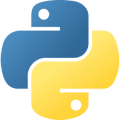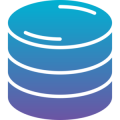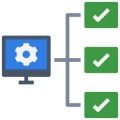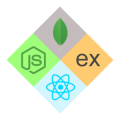Java Training Institute In Pune
The Comprehensive Java Programming course is designed to cater to both beginners and experienced developers looking to enhance their Java programming skills. The course covers the fundamental concepts of Java programming and gradually progresses to more advanced topics, ensuring a solid understanding of the language for all participants. Whether you are a beginner with no prior coding experience or an experienced developer seeking to expand your knowledge, this course will provide you with the necessary skills to develop robust Java applications.
Key Highlights
Certification
Mentor Support
100 % Job Assistance
Projects and Assignments
Interview Preparation
Hands-on Experience
Comprehensive Coverage
Flexible Learning Options
Learn Java
Java is a high-level, object-oriented programming language used to create standalone and web-based programs. It is platform-independent and architecturally neutral, making it one of the most widely used programming languages in the industry.
Java Course Overview
At our Java Training Classes in Pune, we focus on providing comprehensive training to improve one’s capability, capacity, and performance in Java programming. Our courses cover a range of topics, including ByteCode, JVM architecture, classpath, objects, and Java syntax synchronization techniques.
Our Java technical course is suitable for beginners and professionals alike, and it provides hands-on experience with Classes and objects, Object-Oriented Programming (OOP), and Modifiers. Acquiring knowledge of Java can lead to a career as a Java developer, with numerous frameworks available such as Hibernate, Spring, Web services, and more.
In terms of opportunities, and advancement Java is the best programming language. It is widely used in various technologies like Hadoop, SalesForce, Cloud Computing, Android, and more. At KDN Infotech, we have the expertise and knowledge to help our students master these skill sets and advance in all Java-related environmental situations.
Skills you'll gain
- Java programming fundamentals
- Application development
- Java libraries and APIs
- Database integration
- Web development
- Java frameworks
- Testing and debugging
- Object-oriented design principles
- Error handling and exception handling
- Performance optimization.
Course Objectives
Core Java
Advance Java
BASIC OF JAVA
Course Duration : 90HOURS
Core java syllabus - object oriented programming (oops concept) in java

- Java - What, Where And Why?
- History And Features Of Java 7 And Java 8
- Internals Of Java Program
- Difference Between JDK,JRE And JVM In Java
- Internal Modules Of JVM
- Variable And Data Type(User Defined And System Defined)
- Unicode System In Java
- Naming Convention In Java
- Advantage Of OOPs (C++ REVISION)
- Object And Class Difference.
- Method Overloading And Overriding.
- Constructor With Their Types.
- Static Variable, Method And Types Of Java Blocks.
- This Keyword In Java.
- Inheritance Aggregation(IS-A) And Composition(HAS-A) In Java.
- Covariant Return Type In Inheritance.
- Super Keyword And Final Keyword.
- Instance Initializer Block In Java.
- Runtime Polymorphism In Java.
- Static And Dynamic Binding In Java.
- Abstract Class And Interface Difference.
- Downcasting With Instanceof Operator In Java.
- Package And Access Modifiers In Java.
- Encapsulation Vs Abstraction.
- Object Class.
- Object Cloning With Cloneable Interface.
- Java Array Object And Properties.
- Call By Value And Call By Reference In Java.
- Strictfp Keyword In Java.
- String Importance In Java.
- Immutable String In Java.
- String Comparison With Their Types.
- String Concatenation With Methods And Operators.
- Substring In Java.
- Methods Of String Class.
- StringBuffer Class And StringBuilder Class In Java.
- Creating Immutable Class In Java.
- ToString Method With Object.
- Exception Handling In Java.
- Try And Catch Block In Java.
- Multiple Catch Block In Java.
- Nested Try In Java Class.
- Finally Block With Try And Catch Block.
- Throw Keyword In Java.
- Exception Propagation With Checked And Unchecked Exceptions.
- Throws Keyword With Custom Excpetions.
- Exception Handling With Method Overriding In Java.
- Custom Exception Or User Defined Exceptions.
- Nested Class In Java.
- Member Inner Class In Java.
- Annonymous Or Unnamed Inner Class.
- Local Inner Class In Method Of Java Class.
- Static Nested Class In Java.
- Nested Interface Java.
- Multithreading In Java.
- Life Cycle Of A Thread Class.
- Creating Thread Using Different Types.
- Thread Schedular Behaviour.
- Sleeping A Thread With Sleep Method In Java.
- Joining A Thread With Join Method.
- Thread Priority Techniques.
- Daemon Thread In Java.
- Thread Pooling In Java.
- Thread Group In Java.
- ShutdownHook Method In Java.
- Multiple Task By Multiple Thread.
- Garbage Collection With GC.
- Runnable Class And Their Methods.
- Synchronization In Java Thread.
- Synchronized Method ,Block.
- Static Synchronization In Java.
- Deadlock Situation In Thread.
- Inter-Thread Communication With Wait Notify And Notify All Methods.
- Interrupting Thread With Interrupt Method.
- FileOutputStream & FileInputStream API In Java I/O.
- ByteArrayOutputStream, SequenceInputStream, BufferedOutputStream, BufferedInputStream .
- FileWriter & FileReader In Java I/O.
- CharArrayWriter With Their Methods.
- Input From Keyboard By InputStreamReader, Console, Scanner.
- PrintStream, PrintWriter Class.
- Compressing And Uncompressing File (Zip-Unzip Files).
- Reading And Writing Data Simultaneously Using Thread.
- DataInputStream And DataOutputStream Class.
- Serialization & Deserialization With File.
- Serialization With IS-A And Has-A Inheritance Relation.
- Transient Keyword With Serialised Object.
- Socket Programming Server And Client API.
- URL Class In Java.
- Displaying Data Of A Web Page Using Methods.
- InetAddress Class And Their Methods.
- DatagramSocket And DatagramPacket In Java.
- Two Way Communication (Server-Client).
- Reflection API In Java.
- Class Class And Object Class In Java Reflection.
- NewInstance() ,Forname(),.Class Methods For Determining The Class Object.
- System Defined Javap Tool.
- Creating Custom Javap Tool.
- Accessing Private Method From Outside The Class Using Method Class.
- Collection Framework API.
- ArrayList Class In Java.
- LinkedList Class Java.
- ListIterator Interface In Java.
- HashSet Class In Java.
- LinkedHashSet Class In Java.
- TreeSet Class In Collection.
- PriorityQueue Class.
- Map Interface In Java.
- HashMap, LinkedHashMap, TreeMap, Hashtable Class.
- Comparable And Comparator Interface In Java.
- Properties Class With Properties File.
- Assertion, For-Each Loop, Varargs, Static Import In Java.
- Lambda Expression And Functional Interface.
- Autoboxing And Unboxing With Wrapper Class.
- Annotation In Java.
- Internationalization In Java.
- ResourceBundle Class In Java.
- I18N With Date,Time,Number,Currency.
- Regular Expression API.
- Pattern And Matcher Class In Java.
- Regular Expression Operators.
ADVANCE JAVA CONTENT
Course Duration : 90HOURS
Advance java syllabus - Web development in java

- JDBC Drivers Types In Java
- Steps To Connect To The All Types Of Database.
- Connectivity With Access Without And With DSN.
- DriverManager Class In Jdbc.
- Connection Interface In Jdbc.
- Statement Interface In Jdbc.
- ResultSet Interface Jdbc.
- PreparedStatement In Jdbc.
- ResultSetMetaData In Jdbc.
- DatabaseMetaData In Jdbc
- Storing Image In Jdbc.
- Retrieving Image In Jdbc.
- Storing File And Retrieving File Using Jdbc.
- Stored Procedures And Functions In Plsql Using Java.
- Transaction Management Tcl Commands.
- Batch Processing Or Group Command Processing.
- JDBC New Features In Java.
- CRUD Mini Project.
- HTML/CSS/JAVASCRIPT Introduction(Hw)
- Servlet In Java
- Basics Of Web Pages
- Servlet API Introduction
- Servlet Interface In Servlet
- GenericServlet In Servlet
- HttpServlet In Servlet
- Servlet Life Cycle In Java
- Apache Tomcat Server
- Steps To Create A Servlet In Tomcat And Connectivity
- ServletRequest Methods In Servlet
- Registration Example With DB Etc…
- Servlet Collaboration
- RequestDispatcher Interface
- SendRedirect Method
- ServletConfig
- ServletConfig Methods
- ServletConfig Example
- ServletContext
- RequestDispatcher Interface
- SendRedirect Method
- ServletConfig
- ServletConfig Methods
- ServletConfig Example
- ServletContext
- ServletContext Methods In Application Scope
- ServletContext Example
- Attribute
- How To Set, Get And Remove Example With Get Set Methods
- Session Tracking
- Cookies Class N Their Methods
- Hidden Form Field Techniques
- URL Rewriting In Servlet
- HttpSession Servlet
- Event And Listener
- Event And Listener Examples
- Filter
- Filter In Java
- Authentication Filter With Example
- FilterConfig With Example
- ServletInputStream And ServletOutputStream Class Example.
- Project Development In Servlet.
- Basics Of JSP
- Life Cycle Of JSP Pages
- JSP API In Java
- JSP In Netbean
- Scriptlet Tag In Jsp
- Expression Tag In Jsp
- Declaration Tag In Jsp
- Out Object
- Request Object
- Response Object
- Config Object
- Application Or Context Object
- Session Object
- PageContext Object
- Page Object
- Exception Object
- Page Directive With Their Attribute
- Include Directive
- Taglib Directive With Their Attributes
- Action Elements.
- Jsp:Forward Tag
- Jsp:Include Tag
- Bean Class Examples
- Jsp:UseBean Tag
- Jsp:SetProperty & Jsp:GetProperty Tags
- Tables Of EL Operators.
- Small MVC Project Using Jsp
- Custom Tags
- Custom Tag Or How To Create User Defined Tags.
- Custom Tag API In Jsp.
- Custom Tag Examples.
- Attributes In Custom Tags.
- Iteration Or Loops And If Else Statement Tag.
- Custom URI In Jsp Tag.
- Examples Of Hibernate In Projects.
- Examples Of Spring In Projects.
Who can apply for the course?
Individuals who have no prior programming experience and want to start their programming journey with Java.
Students pursuing computer science or related fields who want to gain a solid foundation in Java programming.
Developers who are proficient in other programming languages and want to expand their skills to include Java.
Programmers who are already familiar with Java but want to deepen their knowledge and explore advanced topics and best practices.
Professionals working in the software development industry who want to add Java to their skillset or update their Java knowledge.
Individuals interested in programming and specifically Java, regardless of their professional background.

100% PLACEMENT ASSISTANCE
Students Placed With Companies
















Frequently
Asked Questions
KDN Infotech is the best Java training institute in Pune. We offer the best IT training programs in both Core Java and Advanced Java. Our experienced and certified Java professionals, use a mix of theoretical lectures and hands-on exercises to ensure that our students gain the skills and knowledge they need to succeed as Java developers in today's competitive job market.
KDN Infotech has a dedicated placement cell to oversee placements and provide 100% placement assistance to our students.
Our trainers are highly experienced and certified professionals. They have extensive knowledge and practical experience in the subject matter and are committed to providing high-quality instruction to our students.
You will receive a KDN Infotech-recognized course completion certificate.
Java developers are in high demand and can work in a variety of industries, including software development, finance, healthcare, and more. Some job titles for Java developers include software engineer, web developer, and mobile application developer.
In India, a Java developer makes an annual income of above Rs 4.5 lakhs. The pay varies based on an individual's performance and position.
The best Java courses in Pune are available for enrollment at KDN Infotech. We also offer 100% job placement assistance on successful course completion.
You can enroll in our Java basic to advance course in Pune by visiting our website and selecting the course you are interested in. Alternatively, you can contact us by phone or email to enroll in a course or to ask any additional questions you may have.

























